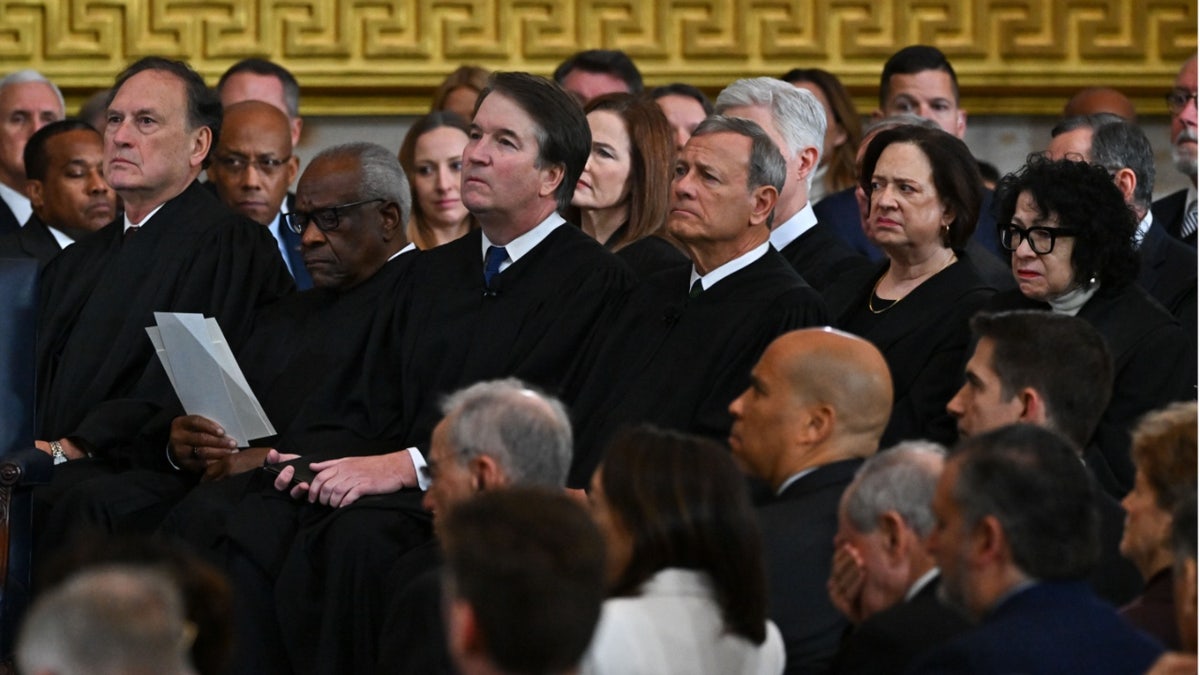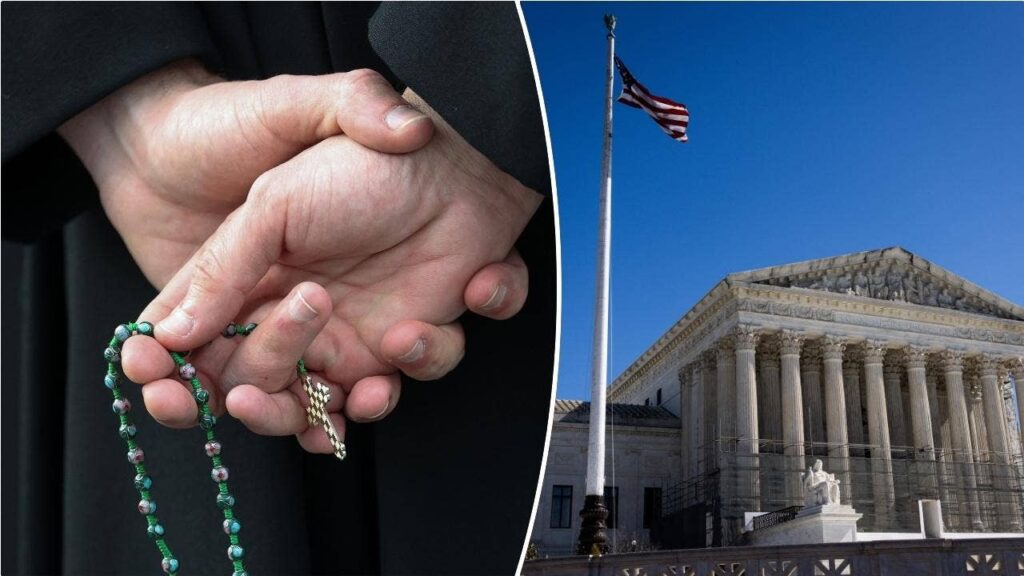The U.S. Supreme Court on Monday heard the first of three major religious rights cases this spring, with an expert telling Fox News the high court has the opportunity to further clarify the free exercise clause’s scope in protecting religious Americans from government interference.
“I think it’s fair to say here that all three cases involve questions that have been lingering in courts for a long time, or that raise issues that are especially pressing right now around the country,” Thomas More Society attorney Michael McHale told Fox News Digital in an interview.
“To me, it seems clear these cases, at least potentially, could stand for the principle that as long as someone’s acting out of a sincerely motivated religious beliefs or sincerely held religious beliefs that triggers the First Amendment, and it requires the government to show a really good reason why the government interests should override that belief,” he added.
POPE FRANCIS’ DOCTORS CONSIDERED ENDING TREATMENT, SAID ‘THERE WAS A REAL RISK HE MIGHT NOT MAKE IT’: REPORT
On Monday, the high court heard a case brought by a Wisconsin-based Catholic charity group’s bid for tax relief, which could alter the current eligibility requirements for religious tax exemptions.
At issue in that case is whether the Wisconsin branch of Catholic Charities, a social services organization affiliated with Catholic dioceses across the country, can successfully contest the state’s high court determination that it is ineligible for a religious tax exemption because it is not “operated primarily for religious purposes.”
“Today’s case involving Catholic Charities in Wisconsin involves questions that we’ve seen a number of times in different contexts,” McHale said. “The question is essentially, can states determine how religious an organization is in order to ultimately determine whether they qualify for a religious exemption that’s already available?”
SUPREME COURT APPEARS LIKELY TO SIDE WITH CATHOLIC CHURCH AND TRUMP IN KEY RELIGIOUS EXEMPTION CASE
McHale said the issue is similar to the one faced during the Obama administration with the HHS contraceptive mandate under the Affordable Care Act, which required most employers, including religiously affiliated organizations, to provide health insurance coverage for contraceptives at no cost to employees.
“I think what the Supreme Court says in this case will probably resolve to a great extent, or at least shed a lot of light on how those other issues should be resolved,” he said.
The other two cases deal with school choice. One involves a case about whether parents can excuse their children from LGBTQ-themed storybooks on religious grounds, and the other is whether a Catholic online school can become the first religious charter school in the U.S.
“Again, we just see these issues arising around the country time and again,” McHale said of the cases.
SOTOMAYOR COMPARES TRANS MEDICAL ‘TREATMENTS’ TO ASPIRIN IN QUESTION ABOUT SIDE EFFECTS DURING ORAL ARGUMENTS

GOP AG PREDICTS WHICH SIDE HAS ADVANTAGE IN HISTORIC SCOTUS TRANSGENDER CASE WITH ‘DIVIDED’ JUSTICES
“The Oklahoma charter school case seems to be a natural development from the religious school choice cases the Supreme Court’s dealt with over the last 10 or so years,” McHale said.
Regarding Mahmoud v. Taylor, the Maryland case about excusing children from LGBTQ material, McHale said “while there is an opt-out statute in state law, the school initially abided it,” but “the school decided to yank the opt-out exception, so to speak, and it really triggered the issue of whether the Constitution requires an opt-out in that circumstance.”
“For the Fourth Circuit to say there was no religious burden, it really seems radical, and given how pressing that issue of school curriculum on sexual orientation, gender identity is, I think it raises an issue worth the Supreme Court’s attention,” he said.
While President Donald Trump signed several gender-related executive orders to stamp out progressive gender ideology from institutions and the federal government earlier this year, McHale said it could likely reduce the infringement on religious rights in situations involving gender ideology, like schools requiring teachers to use students’ preferred pronouns.
“The hope is Trump’s executive orders and the shifting political ends ease those burdens outside the courts,” McHale said. “We’ll have to see how it all makes sense.”
Read the full article here

